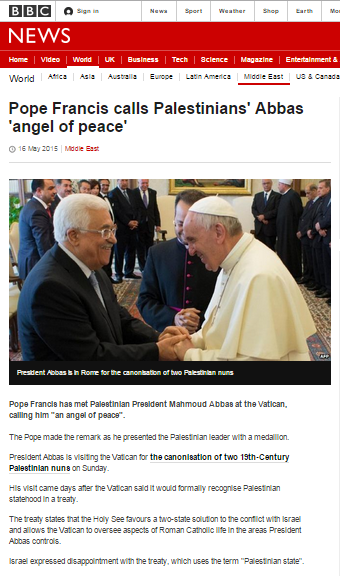Back in August 2014, the BBC’s Orla Guerin closed a filmed report from the Gaza Strip with the following words:
“Fishermen were back on the water today, grasping at normal life. Palestinians are living and dying under Israel’s military occupation. Many now see Hamas as their only hope of escape.” [emphasis added]
As was pointed out here at the time:
“There is, of course, no Israeli “military occupation” of the Gaza Strip and has not been for nine years. The legal definition of military occupation is as follows:
“Art. 42. Territory is considered occupied when it is actually placed under the authority of the hostile army.
The occupation extends only to the territory where such authority has been established and can be exercised.”
As Col. (Ret.) Pnina Sharvit Baruch explains:
“In order for effective control to exist, the foreign army must be able to impose its will on the local population whenever it so chooses while the sovereign government is unable to exercise its authority in the territory due to the effective control of the foreign army. Even according to this more flexible approach, fulfilling “effective control” usually requires the occupier to have forces present on the ground or at least to have the ability to send, within a reasonable time, forces into the area to exercise the authority therein.””
Guerin’s claim is however not a one-off aberration: examples of portrayals of the Gaza Strip as being under ‘occupation’ despite the 2005 Israeli disengagement can be found in other BBC content still available on the internet – for example here and here.
Now Dr Marko Milanovic of the University of Nottingham School of Law brings us some interesting news:
“… the Grand Chamber of the European Court of Human Rights [….] has (implicitly!) decided that Israel is not the occupying power in Gaza. How so, you ask?”
Dr Milanovic’s explanation can be found here.




